Do you love stationery as much as I do?
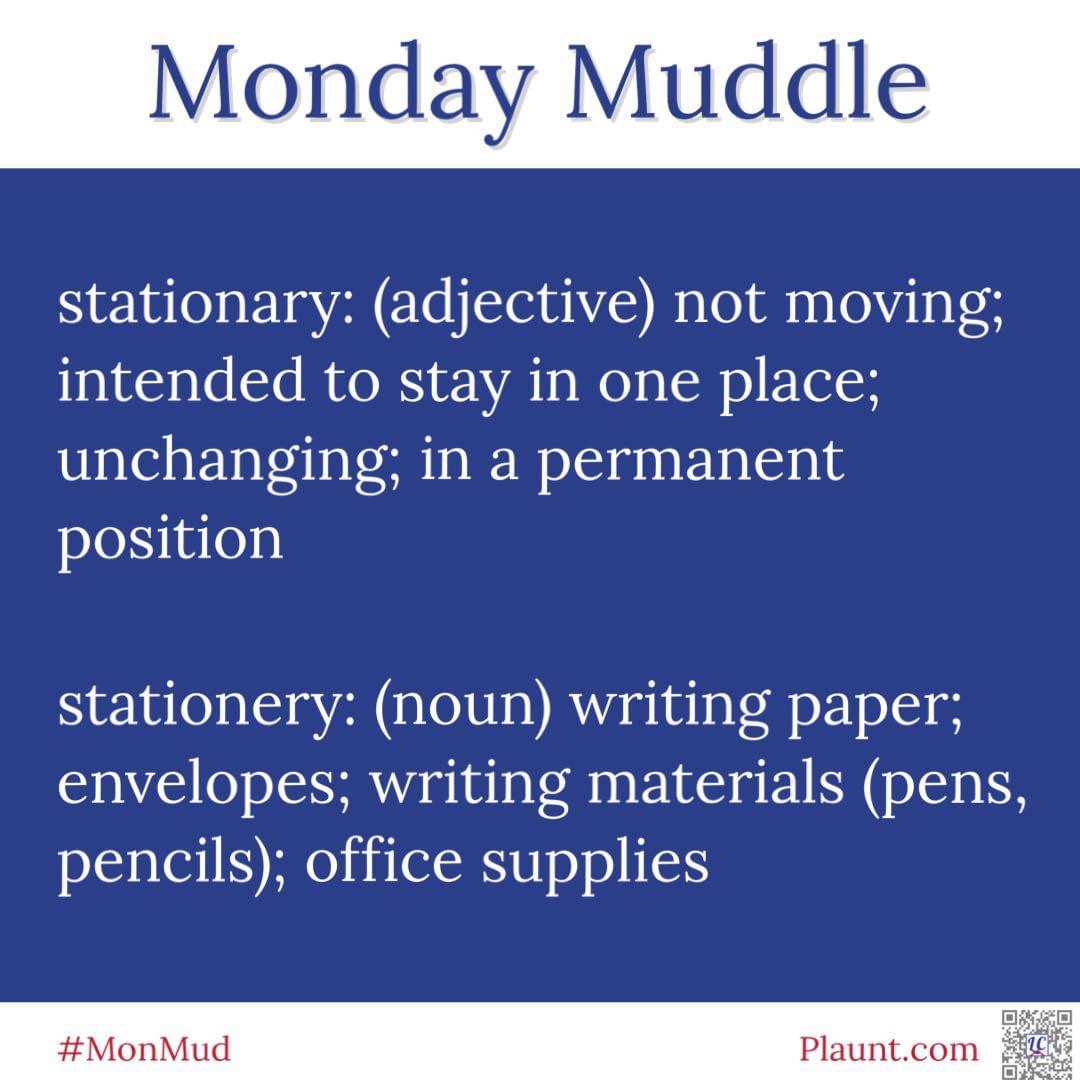
Do you love stationery as much as I do?

By far the most common uses of affect and effect are affect as a verb and effect as a noun. The memory trick I use to help keep them straight is that affect is an action and starts with A. A is for action. Effect is a consequence or end result. E is for end. And if you have trouble remembering which is which, I would recommend trying to avoid the less common versions.
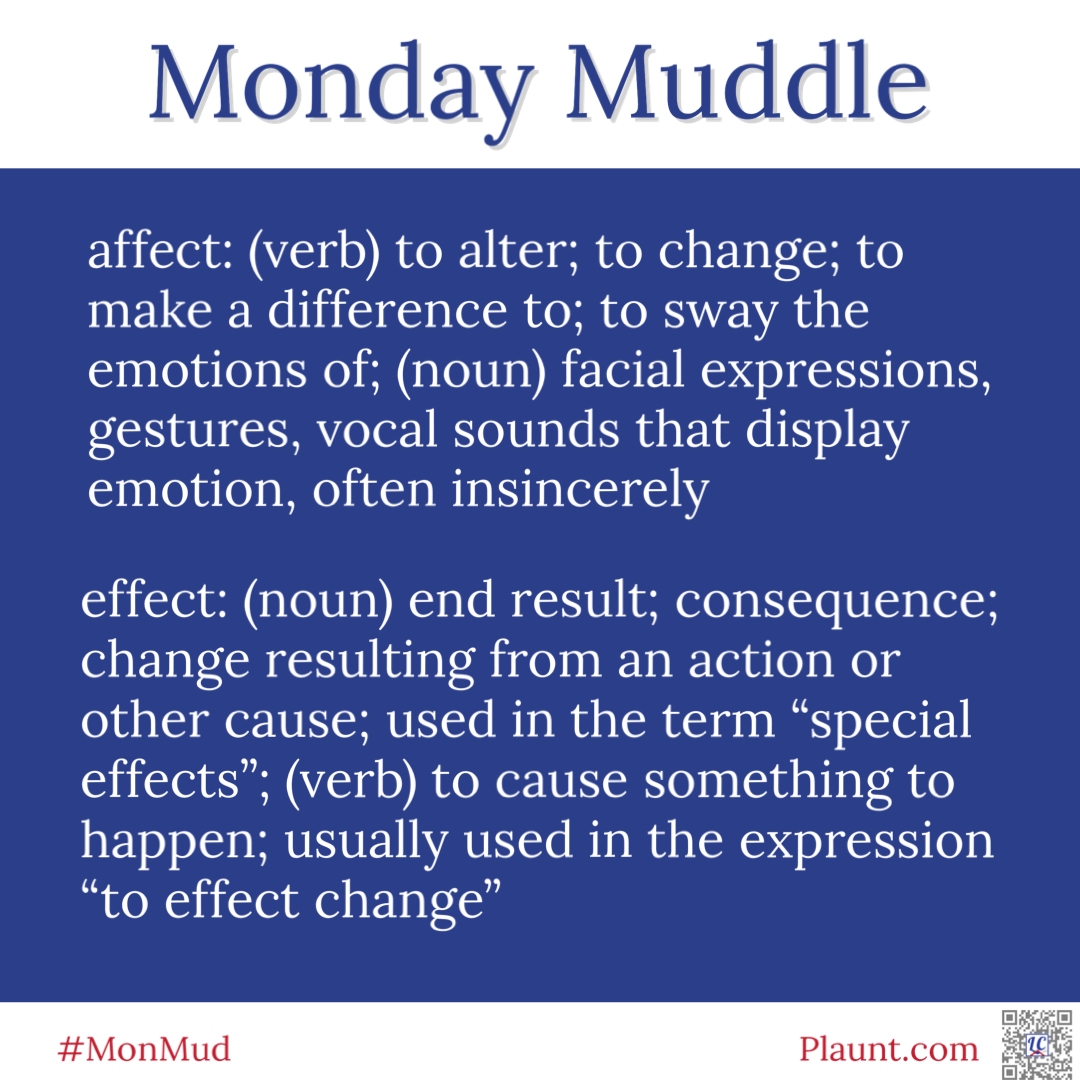
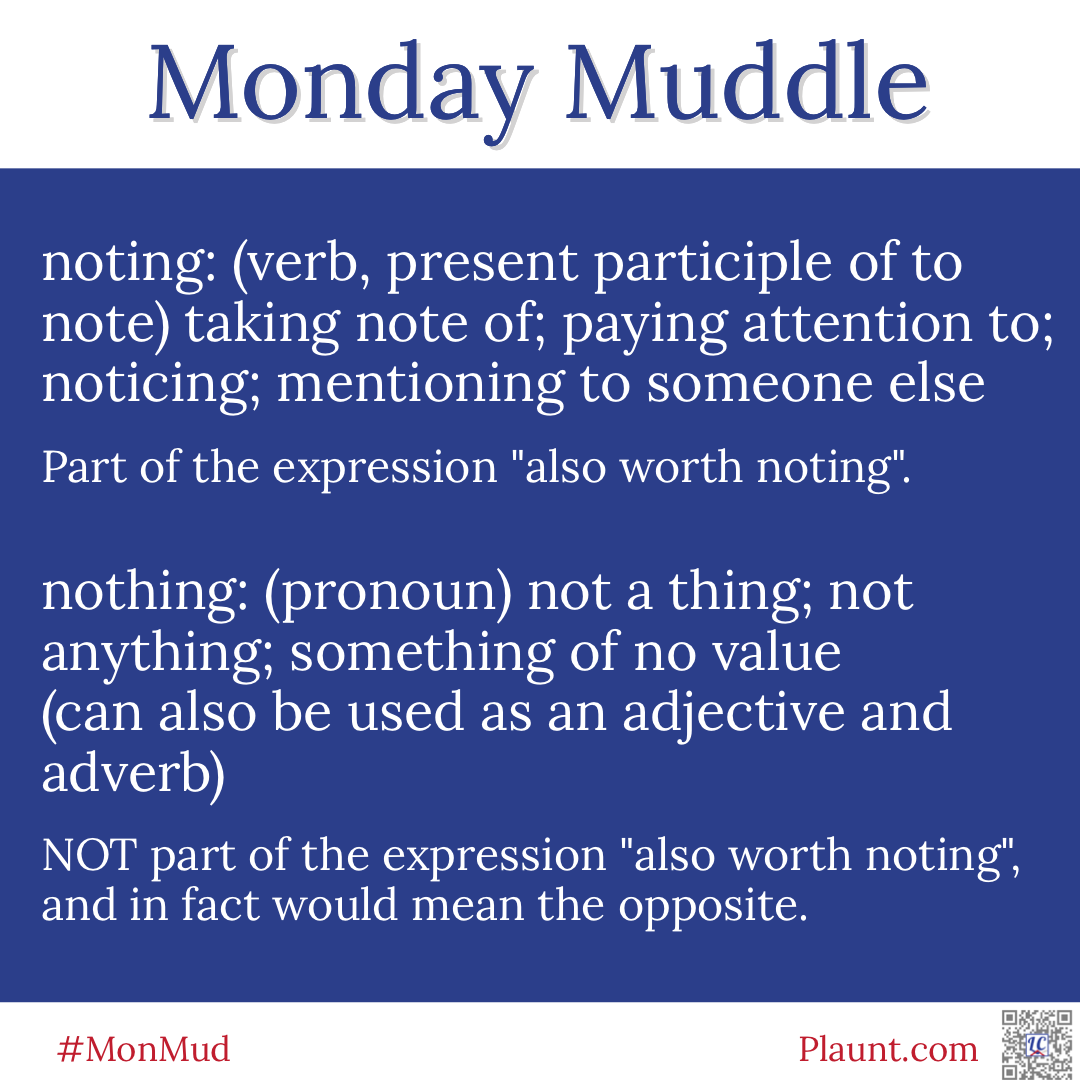
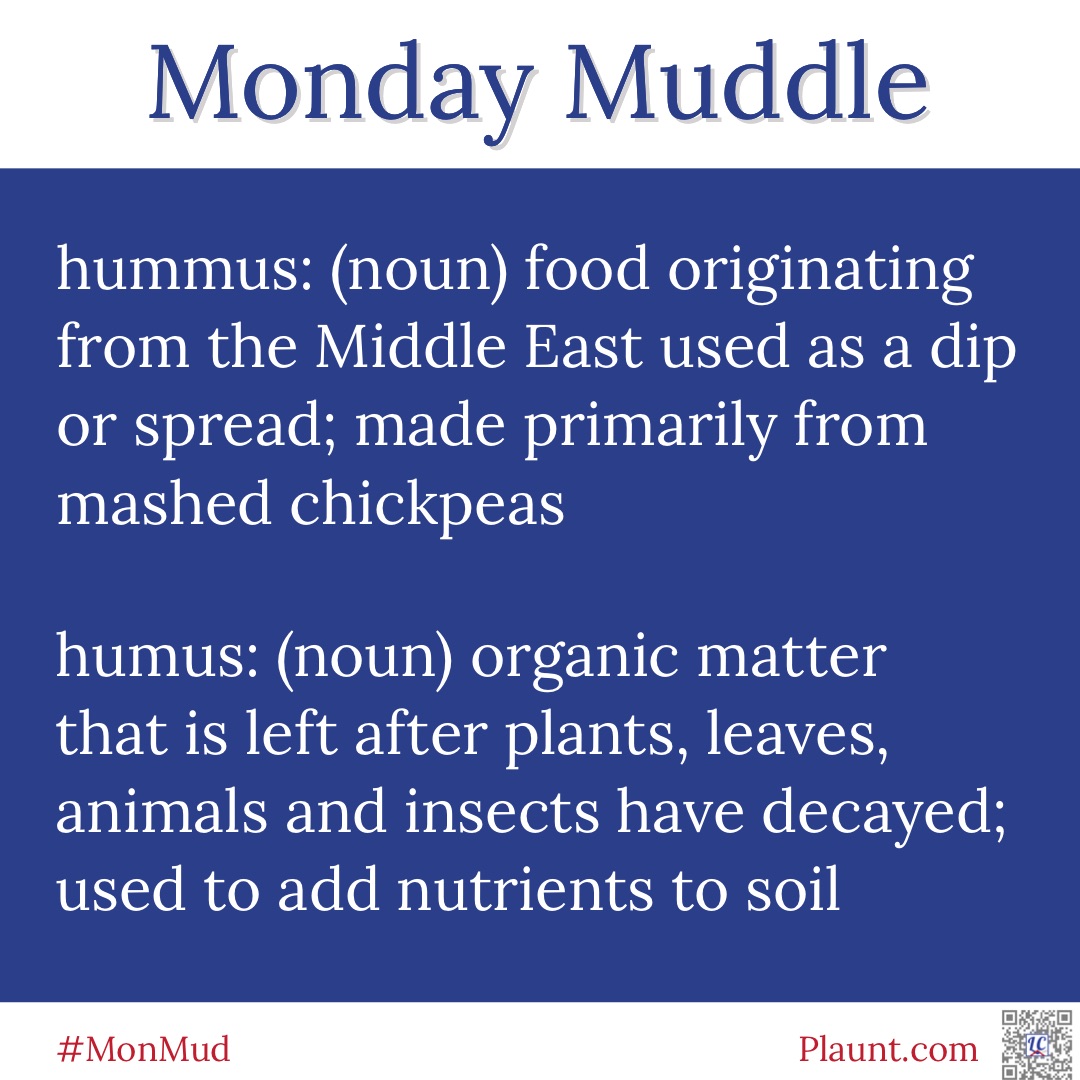
I enjoy hummus on pita bread. I don’t think I would like humus on pita bread. 😳
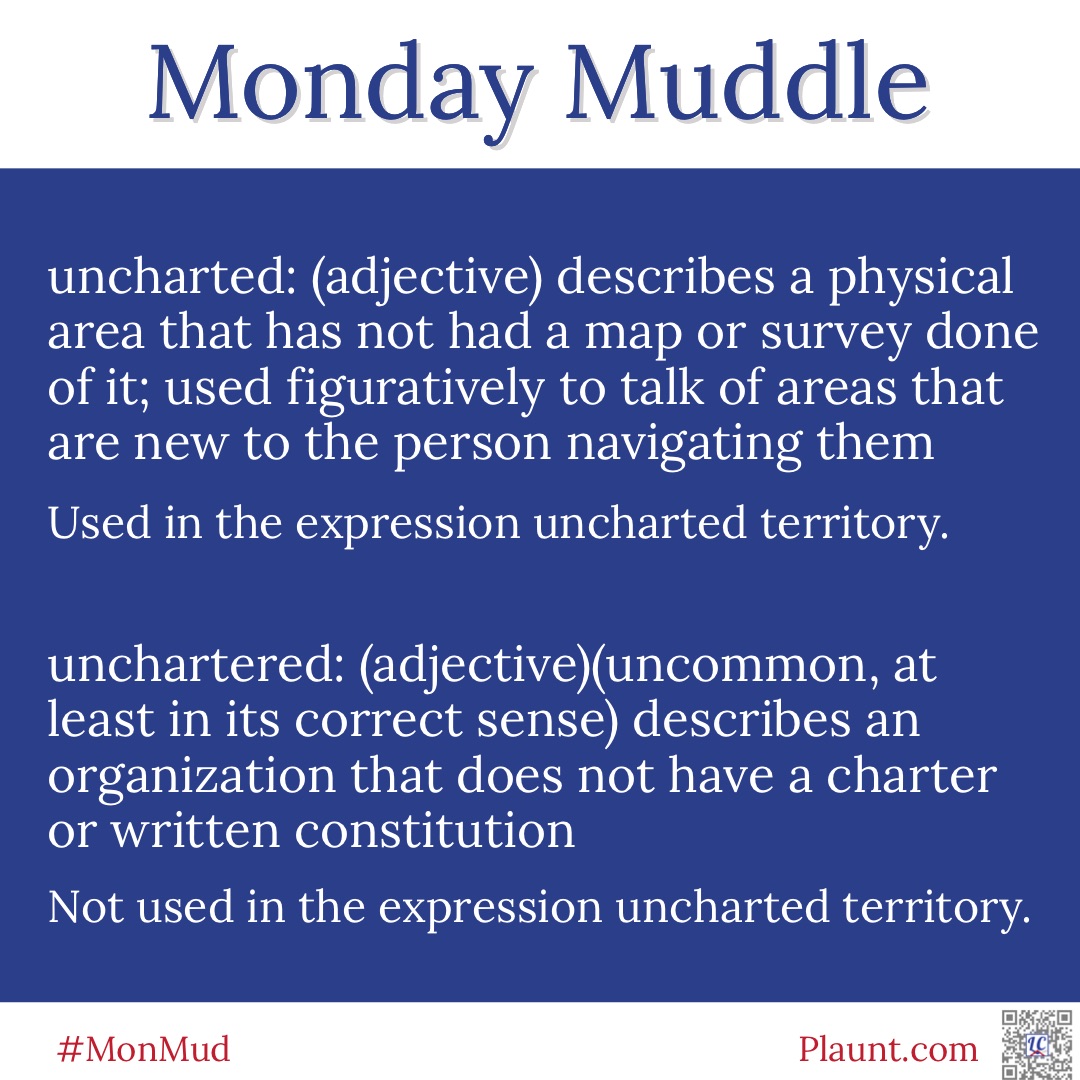
Chartered (adjective) can mean to have a charter or constitution, but it can also be used to describe a vehicle that has been rented, usually with the driver, for private tours.
The other day a friend asked me how long Gilligan’s trip was supposed to be. If you have no idea what I’m talking about, it’s okay; it just means you are young. (But if you ever need the answer for a trivia competition, it was a three hour tour.) Gilligan was working on a boat that was chartered. They may have ended up in uncharted waters, but because they were there, they were not unchartered waters.
To fear better is not the same as to fare better.
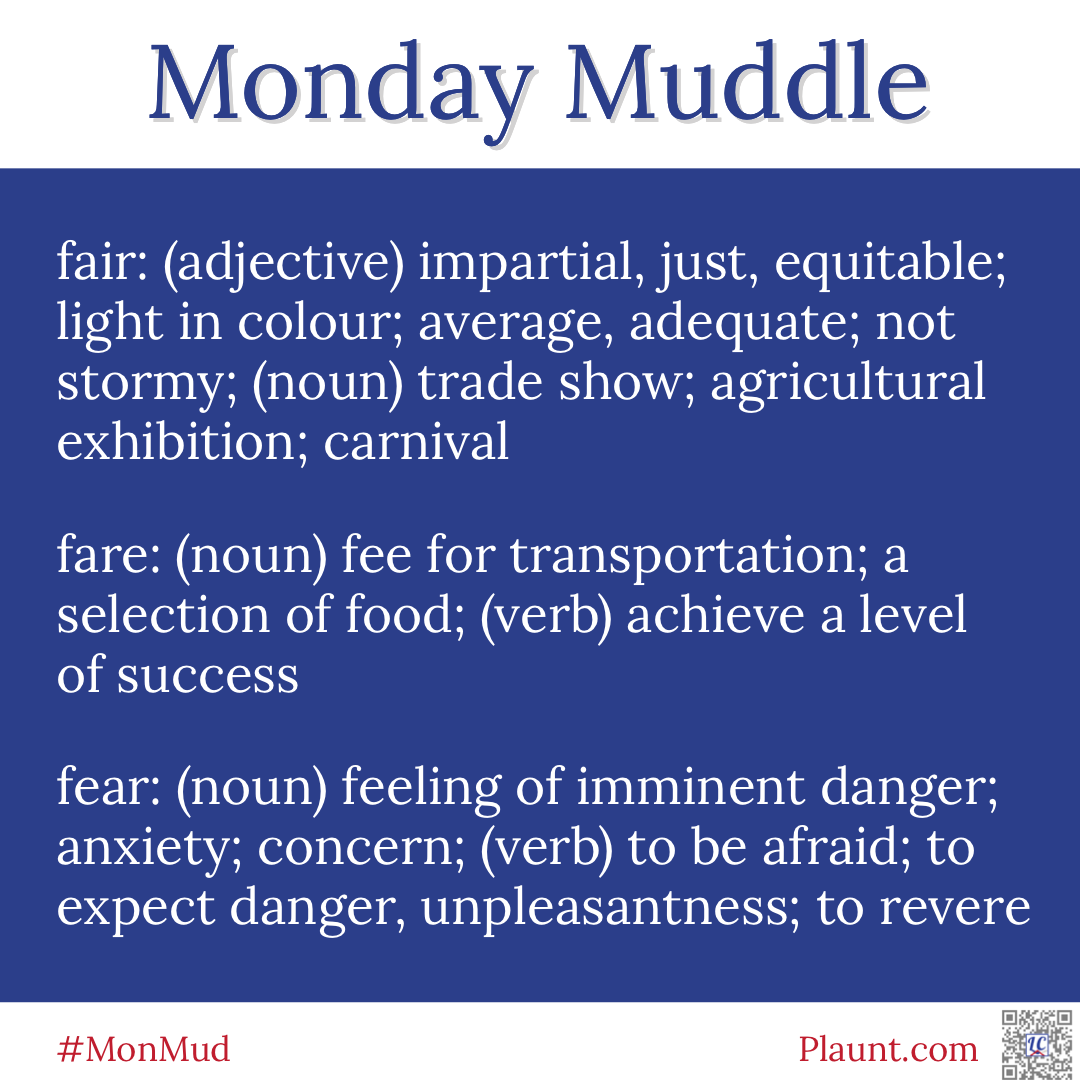
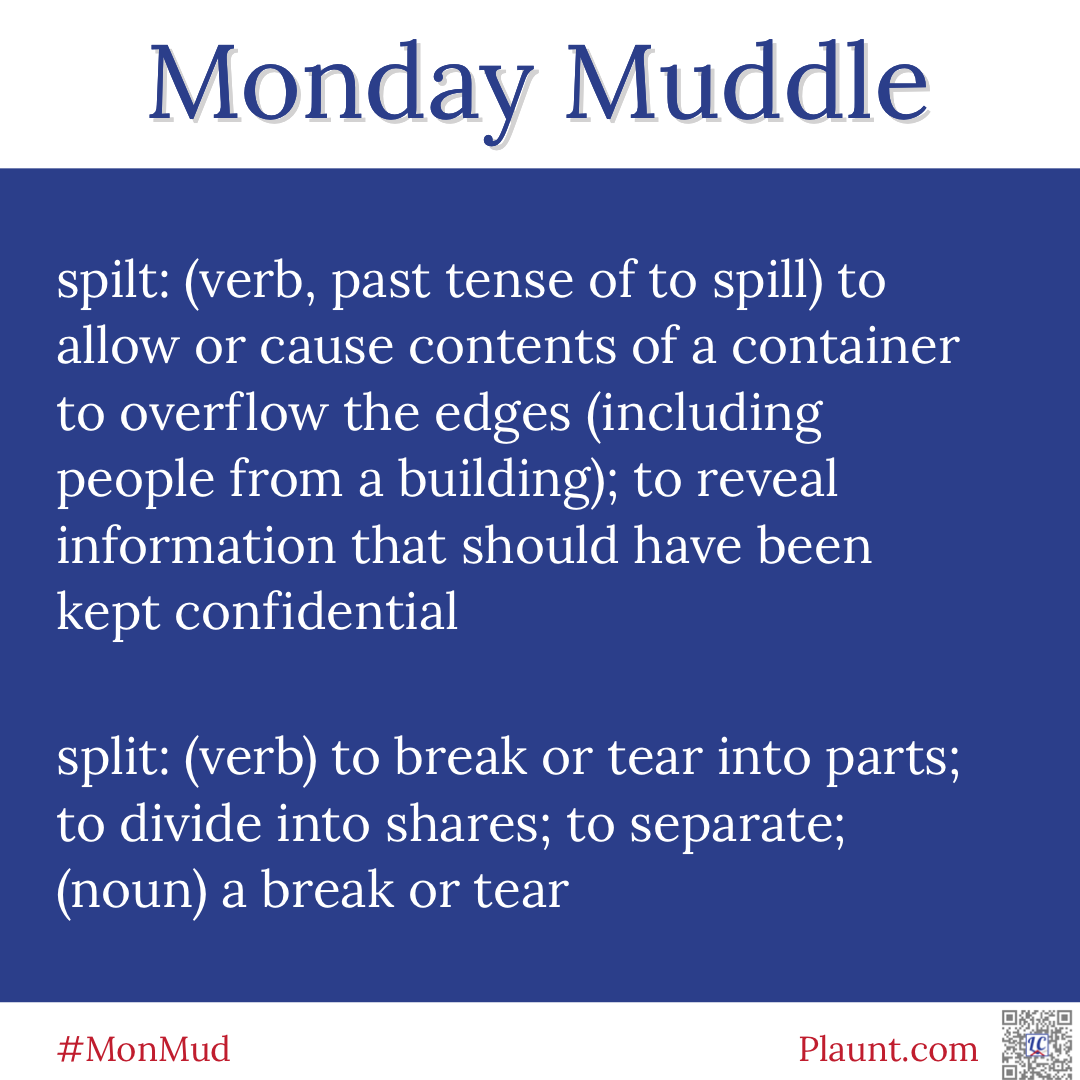
If a bag split, the contents would likely be spilt.
“Spilt” and “split” are also both past participles which can be used as adjectives. e.g. Split pea soup, whether you are a fan of it or not, is better than spilt pea soup.
“Spilt” is the original British past tense of “to spill”, and “spilled” is the American version. Although “spilt” is still acceptable in the United Kingdom, it is becoming less common, and “spilled” is gaining in popularity—as the past tense, not as a condition of soup.
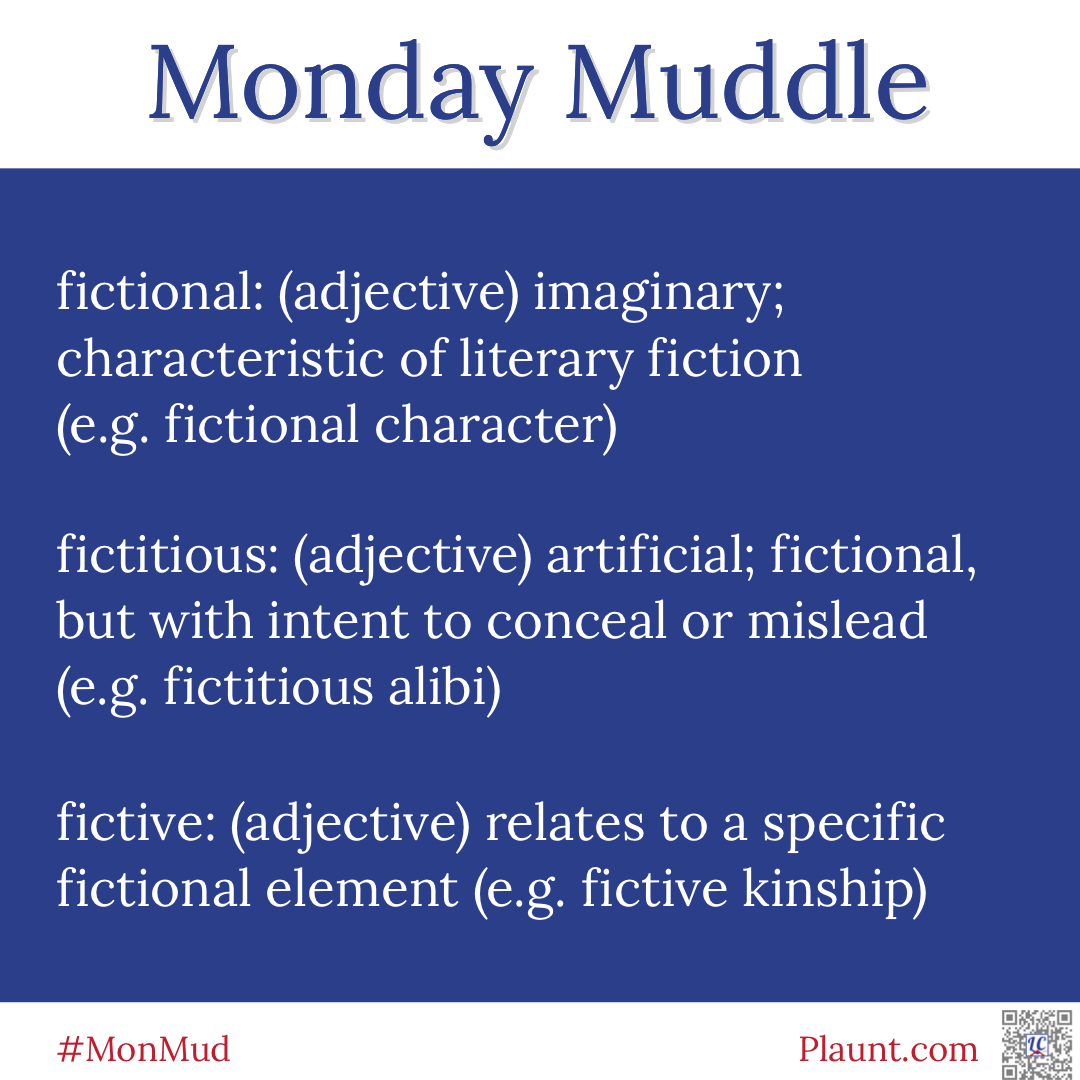
The meanings of these three words are very similar, and all relate to creations of the imagination. But there are some nuances. If it’s in a negative context—not being factual for the purpose of being deceptive—use “fictitious”. If you are discussing literature, use “fictional”. “Fictive” is less common than the other two, and is often used in the phrase “fictive kinship” which is a relationship based not on familial ties but on a close relationship. (e.g. when you call your mother’s best friend Aunt Sue)
When the verb “break” is used to mean pause, it is often stated as the phrase “to take a break”. But after working for an extended period it is also common for someone to say, “Let’s break for coffee.”
Working with someone on your breaks does not mean the same thing as working with someone on your brakes.
Saying your car has new breaks is not a good idea if you are trying to sell it. New brakes, however, would be worth mentioning.
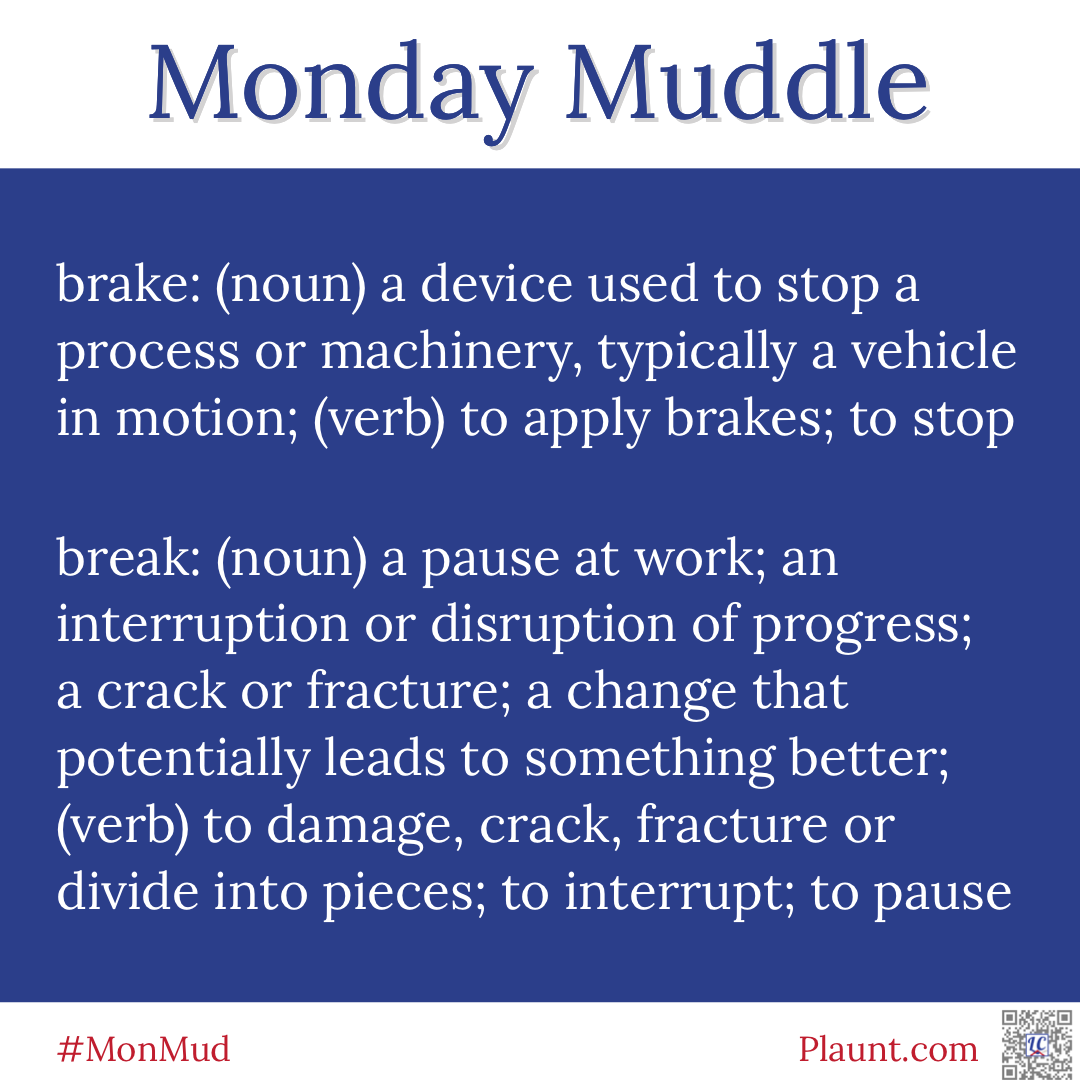
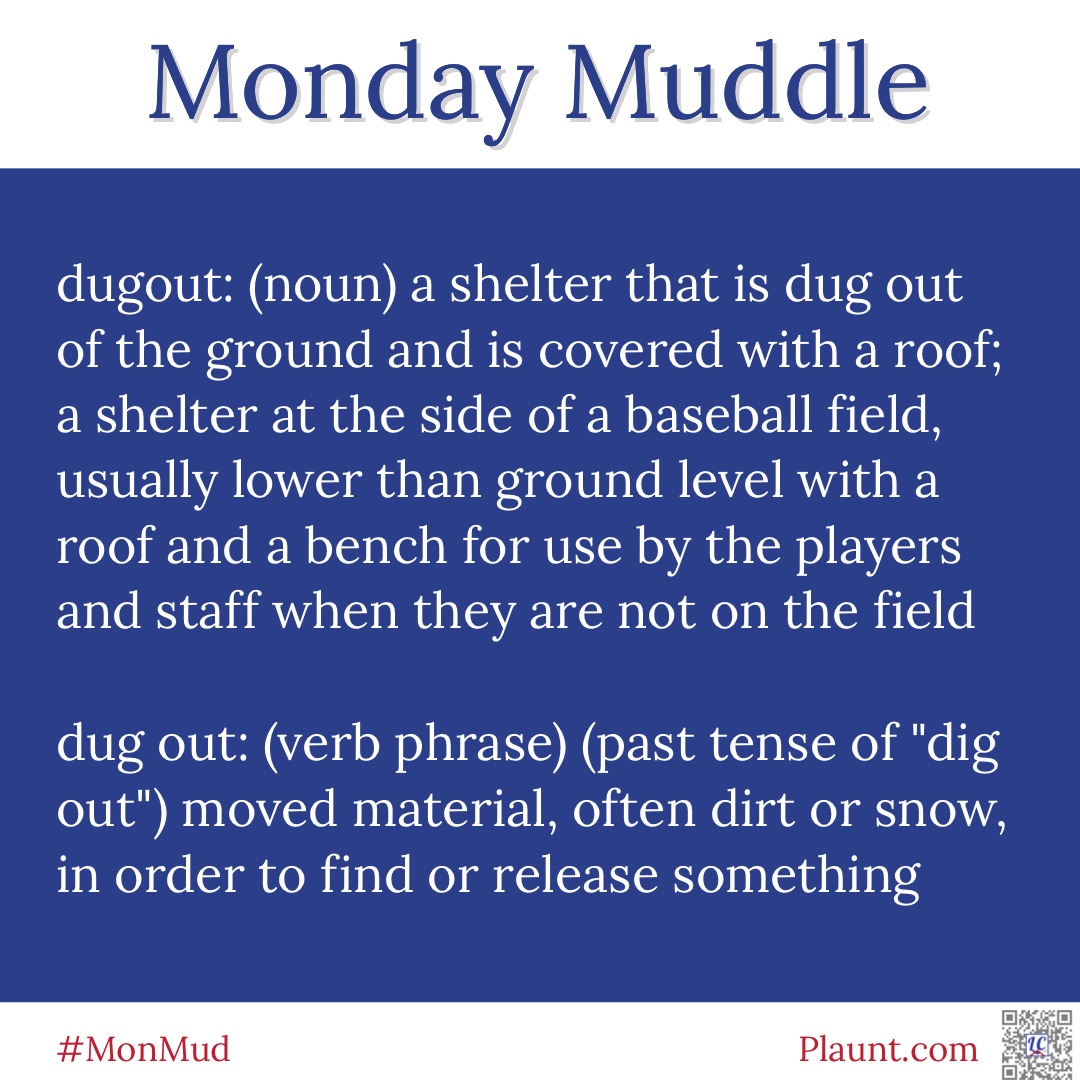
In Canada, and possibly other places where winters are harsh, you might hear someone say, “After we get dug out…” because after a big snowstorm it can be a major project to get through your doorway and shovel a path to your driveway and your car. If, however, you hear someone say, “After we get dugout…” they may be talking about building a baseball stadium. In that case, a definite article (the) or an indefinite article (a) should precede the noun “dugout”. If you are the one building the baseball stadium, you would be responsible for getting the dugout dug out.